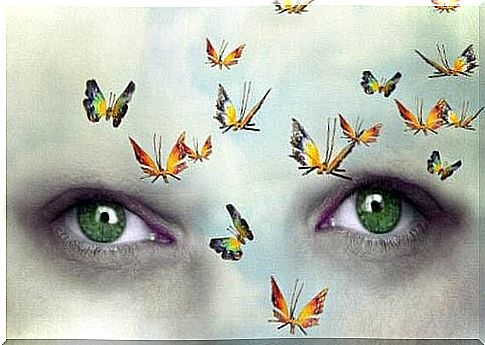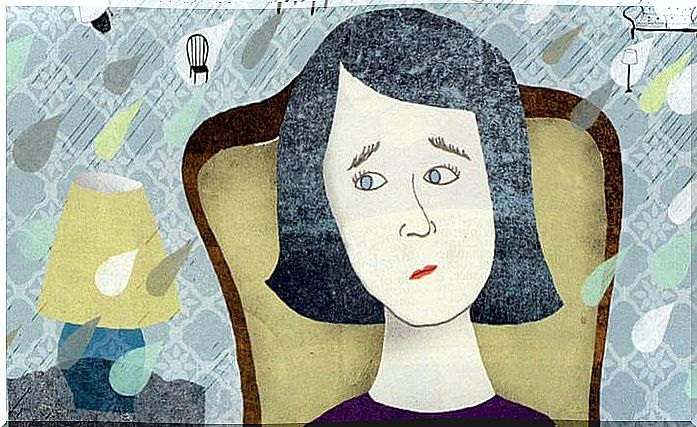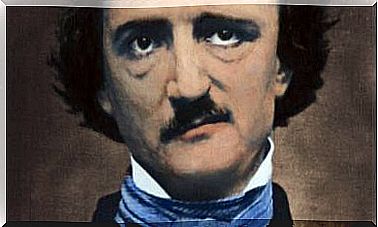Anxiety And The Questions About It

Anxiety is a condition that comes out of the belief that there is a threat or danger in our environment. Furthermore, we should run away from it or confront it if we are to survive.
Currently, it has been described as a negative condition that we should not feel because of the unpleasant physiological symptoms it causes and how much it hinders our freedom. But the truth about anxiety is that if it is well managed, it is a healthy and adaptive feeling, without which we would not have survived.
Today, many people all over the world suffer from anxiety and it manifests itself in many different ways. But everyone has a common fact. The one who experiences it interprets reality as if something terrible, threatening or catastrophic is about to happen.
A person with anxiety no doubt thinks that something very bad will happen. They need to prepare for it, either by running away and staying safe or by fighting and defending themselves.
Usually, the negative thoughts generated by anxiety are in the form of questions. These questions are aimed at confirming our own beliefs, Whatever the need for approval, perfection, security, etc.
In this sense, these emotions have the function of helping us achieve our goals. Which in case of anxiety is to run away or attack, and it does so through your behavior. But when we are anxious on an unhealthy level, we find that emotions are no longer useful. Instead, it prevents the achievement of our goals and generates setbacks toward our goals.
The key to avoiding this is to change our interpretations while modifying the way we behave. To do this, we must be able to discover our own beliefs. We need to question them, debate them and replace them with some that are based on truth and reality.
Questions about anxiety
We mentioned above that anxiety often communicates with us by asking questions that warn us and activate us on a psychological level. They tend to be negative issues with the purpose of filtering reality. So we can only consider the small risk of danger that is seen as a very likely option, of course.

General anxiety: what if…?
Anxiety is always prone to asking about the small possibility. However, in the case of general anxiety, the risk of danger extends to a wide range of situations in your daily life. This greatly hinders the person’s daily life.
“What if?” seen everywhere (in terms of children, your romantic partner, environmental conditions, work…). This forces you to pay attention for too long and suffer under too many circumstances without rest, neither physically nor mentally.
They feel they need to worry so that the possible disasters, even if they are unlikely, will not occur. And eventually they find that the worry that invades them is what they really should be worrying about.
Panic Disorder: What if I get a stroke? What if I go crazy? What if I do something embarrassing?
Here, individuals feel anxiety because of the symptoms of their own anxiety. It is like the child who is afraid of his own shadow. The more he runs, the more he gets persecuted.
The questions are about the catastrophic consequences of the physiological manifestations of anxiety. These may seem like certain diseases and may even make them think they are going crazy or dying. There are people who are also afraid of fainting or making fun of themselves or “ creating themselves ” in public. This causes them to avoid going out more and more, thus consolidating their agoraphobia.
Hypochondria: What if I get a fatal disease?
As you would expect, in the case of hypochondria, anxiety scares us by asking us about the possibility of us getting sick. It even adds to the idea of death. To try to alleviate this fear, we are checked again and again or avoid going to the doctor completely. This way, even though we are actually sick, we will not find out and do not have to endure that discomfort.
Social Anxiety: What if I do something embarrassing? What if they notice that I’m shy?
In social anxiety , our little inner devil constantly asks what would happen if we did something embarrassing, if we have nothing to say, if we make mistakes or what others may think of us.

This bombardment of questions makes us react with fear. We blush from shame, sweat, strain and also fear that these symptoms will be visible to other people. Because this makes us feel even more “weak”. Eventually we will run away from “dangerous situations”, which confirms that this is our only choice.
Anxiety is a little inner devil
As we just read, anxiety is a little inner devil who loves to keep us alert, see us sweat, tremble, blush or hyperventilate. This devil enjoys asking us negative questions or telling us that everything is dangerous and that we just need to run away.
The less attention we give it, the more it gets tired. Slowly it will begin to leave us. The key is to look it straight in the eye, accept it and tell it that we already know all its tricks. But this time we have control. We will not let ourselves be afraid of it anymore.
Challenge the little devil. Ask it out and do not believe it, for it is a great liar. But even if it may make you feel bad, uncomfortable or scared, always remember that it is nothing more than an unreal interpretation of reality. Remember, the symptoms are only the product of a feeling that only deep down will help us.









